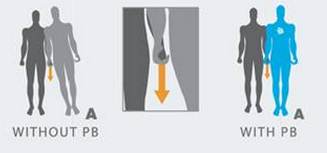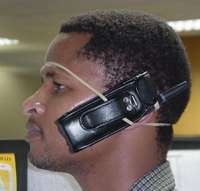The old anecdote says that power corrupts, and absolute power corrupts absolutely. The Economist has a fascinating article describing experiments into this effect.
These experiments show that there is in fact a causal link between power and corruption. Even more interestingly, they may point to the reason for this link.
How the experiments work
The researchers used “priming” techniques to make test subjects feel either powerful or powerless.
Once primed, both high-power and low power subjects were asked to rate the morality of various situations. For example the researchers asked subjects to rate the morality of cheating on taxes or of taking an abandoned bicycle.
The results
The experiments showed a significant difference in the judgments of high-power and low power subjects:
- High-power = Judge others more harshly than yourself
- Low-power = Judge others more leniently and yourself more harshly
Power does indeed seem to cause people to judge themselves more leniently than others – they are moral hypocrites.
The entitlement hint
It seems that powerful people not only abuse the system, they also feel entitled to abuse it. This proved to be an important hint and the researchers did more experiments to explore this entitlement.
In these experiments the subjects were primed again, but this time entitlement was split from power:
- High-power subjects who felt they deserved to be powerful
- High-power subjects who felt they did not deserve the power
- Low-power who deserved to be powerless
- Low-power who did not deserve to be powerless
These subjects were also asked to rate moral actions of themselves and others.
Again the powerless judged others leniently and themselves harshly. This was true whether they legitimately powerless or not.
As expected, those who felt entitled to their power judged others very harshly and themselves very leniently.
The interesting result is for those who were powerful but felt the high-power position was undeserved. These subjects were lenient on others but very harsh on themselves.
This was the exact opposite of the normal result for high-power test subjects.
The reasons why
Why would undeserving powerful people be harsher on themselves than others? That is the opposite of the usual reaction to having power.
The answer to that question provides an elegant explanation for the whole set of results.
Humans evolved living in smallish groups with dominance hierarchies. In such hierarchies all of the experimental results make sense.
Powerful (dominant) members of the band can get away with bending the rules (judging themselves more leniently). They should also deal harshly with anyone lower in the hierarchy taking a chance (judging others more harshly).
Powerless group members should be submissive – they should judge others (normally more dominant) leniently and themselves harshly.
When people from low in the hierarchy find themselves temporarily in powerful positions they are in danger of attracting punishment from the true dominants.
So they act extra-submissively by judging themselves extra harshly and being extra lenient on others.
It all makes sense!



 The Economist has an
The Economist has an